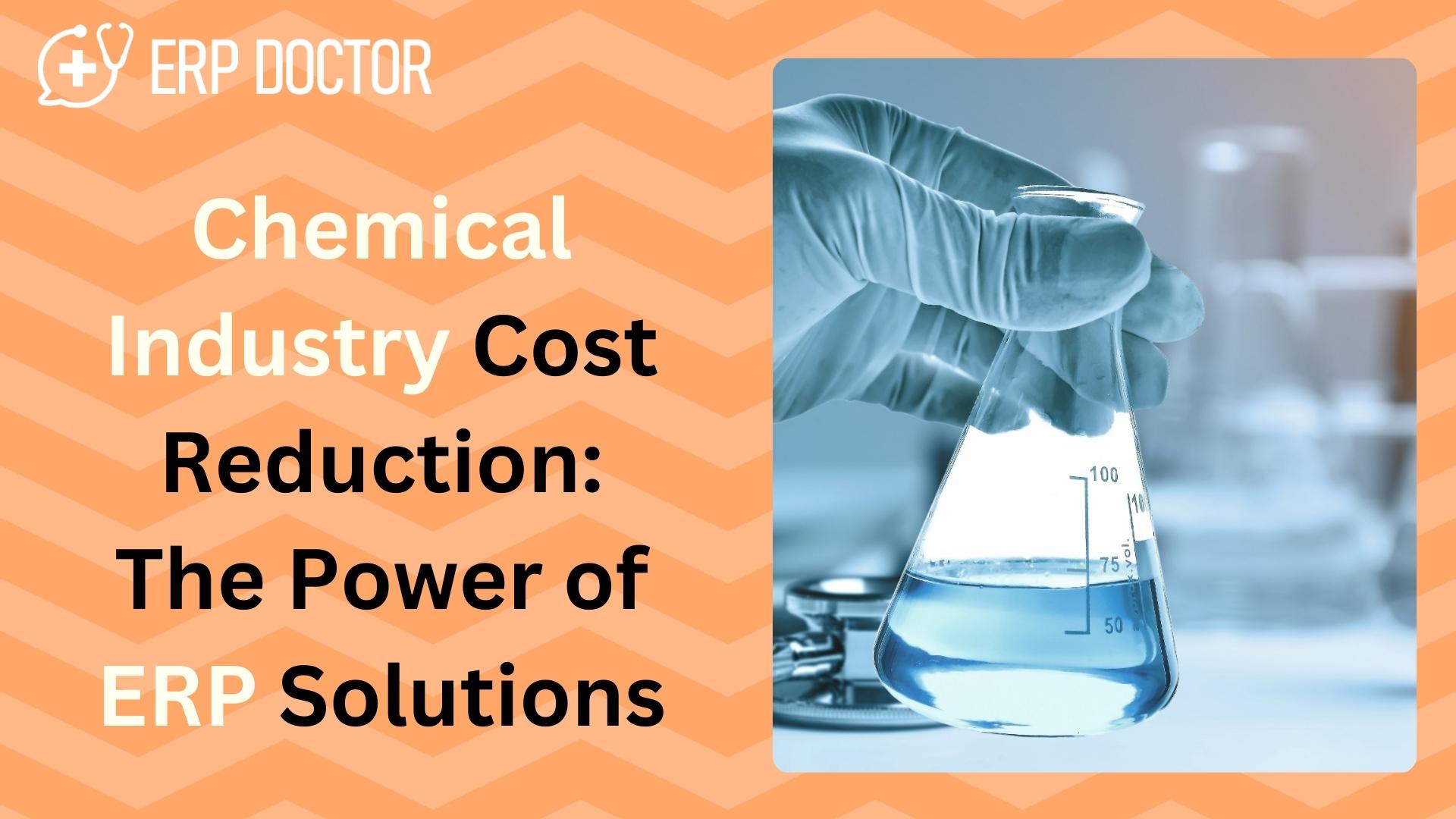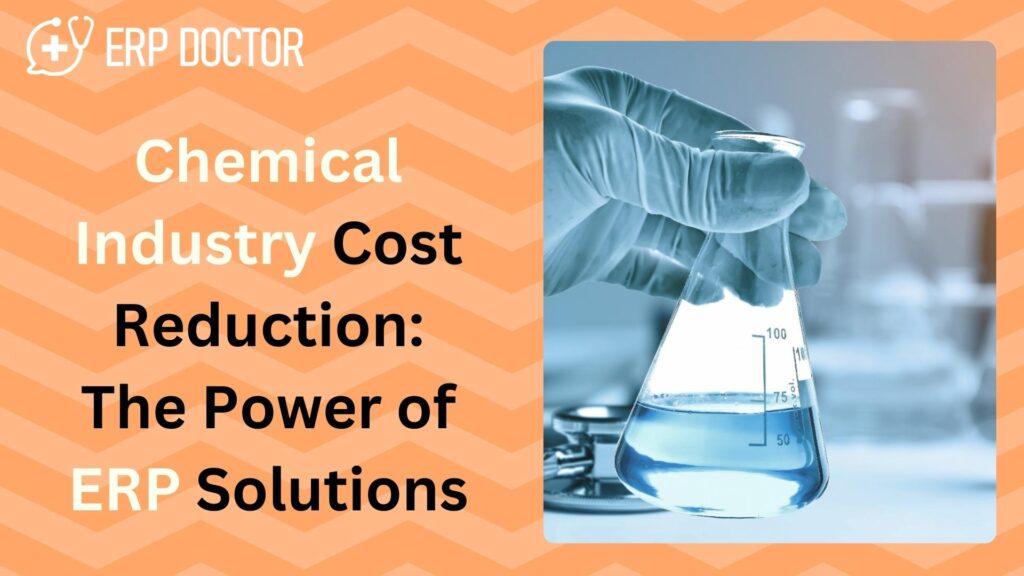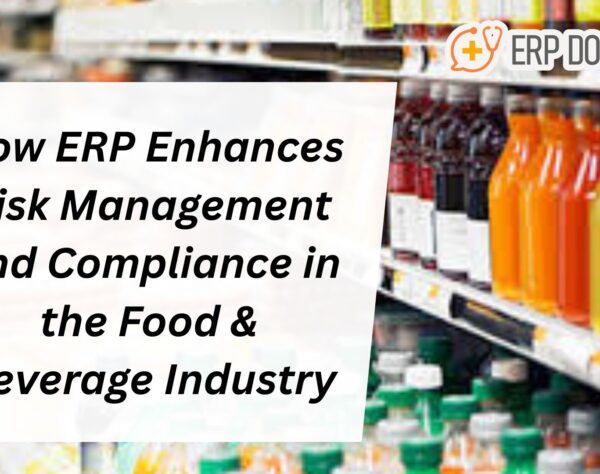
Chemical Industry Cost Reduction: The Power of ERP Solutions

How ERP Solutions Cut Costs for Chemical Industry
In the competitive chemical industry, managing costs effectively is crucial for profitability and sustainability. Enterprise Resource Planning (ERP) systems have emerged as powerful tools that help chemical companies streamline operations, enhance productivity, and significantly cut costs. This blog explores how ERP solutions contribute to cost savings and provide a competitive edge.
Table of Contents
1. Understanding ERP in the Chemical Industry
ERP systems integrate core business functions such as procurement, production, compliance, and supply chain into a centralized system. For chemical companies dealing with complex processes, regulatory compliance, and hazardous materials, ERP offers an efficient way to manage operations while reducing costs.
2. Key Cost Reduction Areas with ERP in the Chemical Industry
Inventory Management
ERP solutions provide real-time inventory tracking, helping chemical companies avoid overstocking and understocking issues. With accurate demand forecasting and automated reorder levels, businesses can minimize inventory holding costs and reduce wastage.
Supply Chain Optimization
By integrating suppliers, manufacturers, and distributors into one platform, ERP helps optimize logistics, reduce lead times, and lower transportation costs. Automated procurement processes also ensure bulk purchasing benefits and prevent procurement errors.
Compliance and Risk Management
Compliance with regulatory requirements is a costly aspect for chemical companies. ERP solutions facilitate automated compliance tracking, documentation, and reporting, helping businesses avoid hefty penalties and legal fees associated with non-compliance.
Production Efficiency
ERP software enables precise production planning and scheduling, reducing downtime and resource wastage. By monitoring key performance indicators (KPIs), companies can identify inefficiencies and optimize production cycles to save costs.
Workforce Management
An ERP system provides tools for efficient employee scheduling, payroll processing, and performance monitoring. By automating HR functions, businesses can reduce administrative costs and improve overall workforce productivity.
3. Benefits of ERP in Cost Reduction
- Data-Driven Decision Making: ERP systems provide comprehensive insights that help in identifying cost-saving opportunities.
- Reduced Administrative Overheads: Automation of manual processes minimizes paperwork and administrative expenses.
- Enhanced Customer Service: Improved order accuracy and on-time delivery reduce customer complaints and costly returns.
- Energy Efficiency: ERP can help track and optimize energy consumption, reducing utility costs.
4. Successful ERP Implementation
A mid-sized chemical manufacturer achieved significant cost savings after implementing an ERP system, driven by improved demand forecasting. Meanwhile, a global chemical enterprise leveraged ERP for compliance management, avoiding substantial fines by staying up-to-date with regulatory changes.
5. Challenges in Implementing ERP
Despite the benefits, implementing ERP systems comes with challenges such as:
- High initial investment
- Employee resistance to change
- Complex customization needs
- Integration with existing systems To overcome these, companies should focus on thorough planning and employee training.
6. Tips for Choosing the Right ERP Solution
- Industry-Specific Features: Ensure the ERP system caters to the unique needs of the chemical industry.
- Scalability: Choose a solution that can grow with your business.
- Compliance Support: Verify if the system meets regulatory requirements.
- User-Friendly Interface: A system with an intuitive interface enhances user adoption.
- Vendor Support: Opt for a vendor offering robust after-sales support and training.
7. Driving Success in the Chemical Industry with ERP
ERP solutions have become indispensable for chemical companies looking to optimize operations and reduce costs. From inventory management to compliance and production efficiency, ERP provides comprehensive solutions to drive profitability and sustainable growth. Investing in the right ERP system can lead to long-term financial benefits and a competitive advantage in the industry.
FAQs for ERP in the Chemical Industry
Q1: How does ERP reduce operational costs in chemical companies?
A: ERP reduces costs by streamlining processes, optimizing resource utilization, and enhancing decision-making with real-time data.
Q2: Is ERP suitable for small chemical companies?
A: Yes, many ERP solutions offer scalable options tailored for small and mid-sized chemical businesses.
Q3: Can ERP help with regulatory compliance?
A: Absolutely. ERP systems automate compliance tracking, documentation, and reporting to meet industry regulations.
Q4: What are the key ERP modules for chemical companies?
A: Key modules include inventory management, production planning, compliance management, and quality control.
Q5: How long does it take to implement an ERP system in a chemical company?
A: Implementation time varies based on company size and complexity but typically takes 6-12 months.
Q6: Does ERP require extensive employee training?
A: Yes, proper training is crucial for successful ERP adoption and maximizing its benefits.
Q7: Can ERP help reduce waste in chemical production?
A: Yes, by optimizing resource allocation and production planning, ERP minimizes waste.
Q8: What are the common challenges in ERP implementation for chemical companies?
A: Challenges include high costs, resistance to change, and integration issues.
Q9: How does cloud-based ERP benefit chemical companies?
A: Cloud-based ERP offers cost savings, scalability, and remote accessibility.
Q10: What is the ROI of implementing an ERP in the chemical industry?
A: The ROI varies, but businesses typically see cost reductions and efficiency improvements within the first year.
Would you be ready to explore the power of ERP Solutions? Let’s start the conversation!
Warning: Trying to access array offset on value of type null in /home/u231991539/domains/erpdoctor.in/public_html/wp-content/plugins/wpforms/includes/class-frontend.php on line 109







